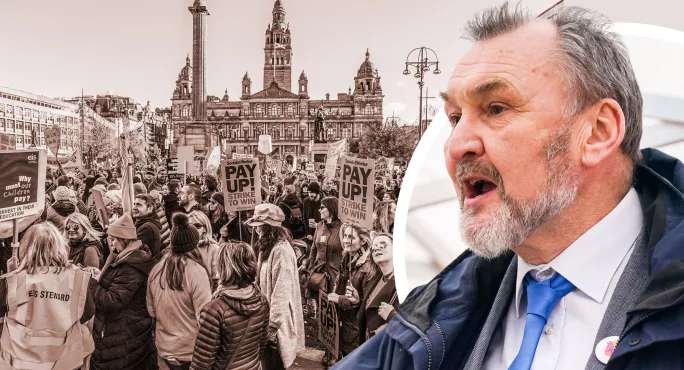The successful teacher pay campaign in Scotland is inspiring teachers in England and Wales and has “frightened” the UK government, NEU joint general secretary Kevin Courtney said this afternoon.
Mr Courtney made his comments at the annual meeting of the EIS, Scotland’s biggest teaching union, where he was accepting a special fellowship.
Scotland’s long-running teacher pay dispute was resolved in March, when union members voted overwhelmingly in favour of an offer that will result in a 14.6 per cent increase in pay for most teachers by January 2024.
Mr Courtney - whose teaching union is the biggest in England - told EIS members in Aviemore: “I’m taking inspiration, like thousands of other teachers in England and Wales are taking, from the fights that the EIS has been waging. Taking inspiration from your huge ballot turnouts, your huge demonstrations, from the successes you’ve won, taking inspiration as well from the degree of membership engagement.”
In March, 90 per cent of EIS members voted to accept the teacher pay offer in Scotland, based on a turnout of 82 per cent.
Mr Courtney welcomed that Scottish first minister Humza Yousaf had made a strong statement against proposed UK-wide anti-strike legislation when addressing the Scottish Trades Union Congress earlier this year. He said that any government that proposed such legislation knew it would be taking a risk, and questioned why the Conservative government at Westminster was prepared to do this.
He said it was because “they’re frightened that education unions are back - they’re frightened of the EIS, they’re frightened of the NEU and we have to take some strength from that”.
Mr Courtney compared Scotland with the different schools landscape in England, where “we have the semi-privatised academies and multi-academy trusts”. He also referred to “pernicious league tables” in England and “the world’s worst school inspection system, Ofsted”, and called on Scotland to “resist those worst excesses of the neoliberal agenda brought to us in England, I regret to say by both parties of government in Westminster”.




